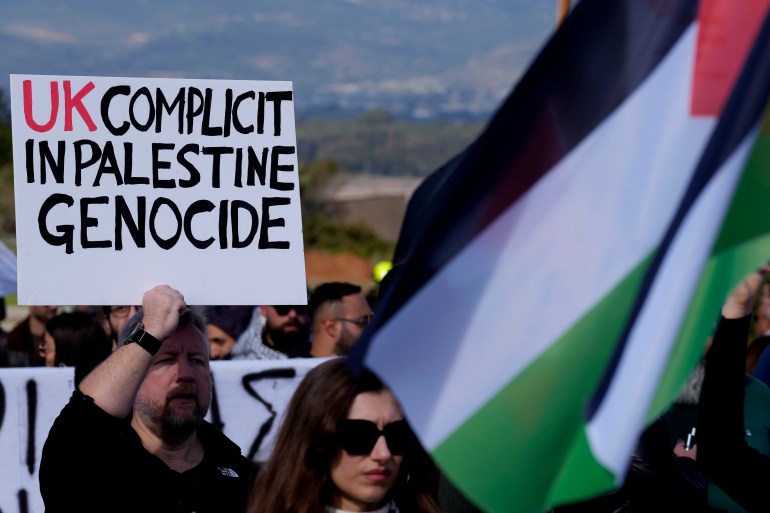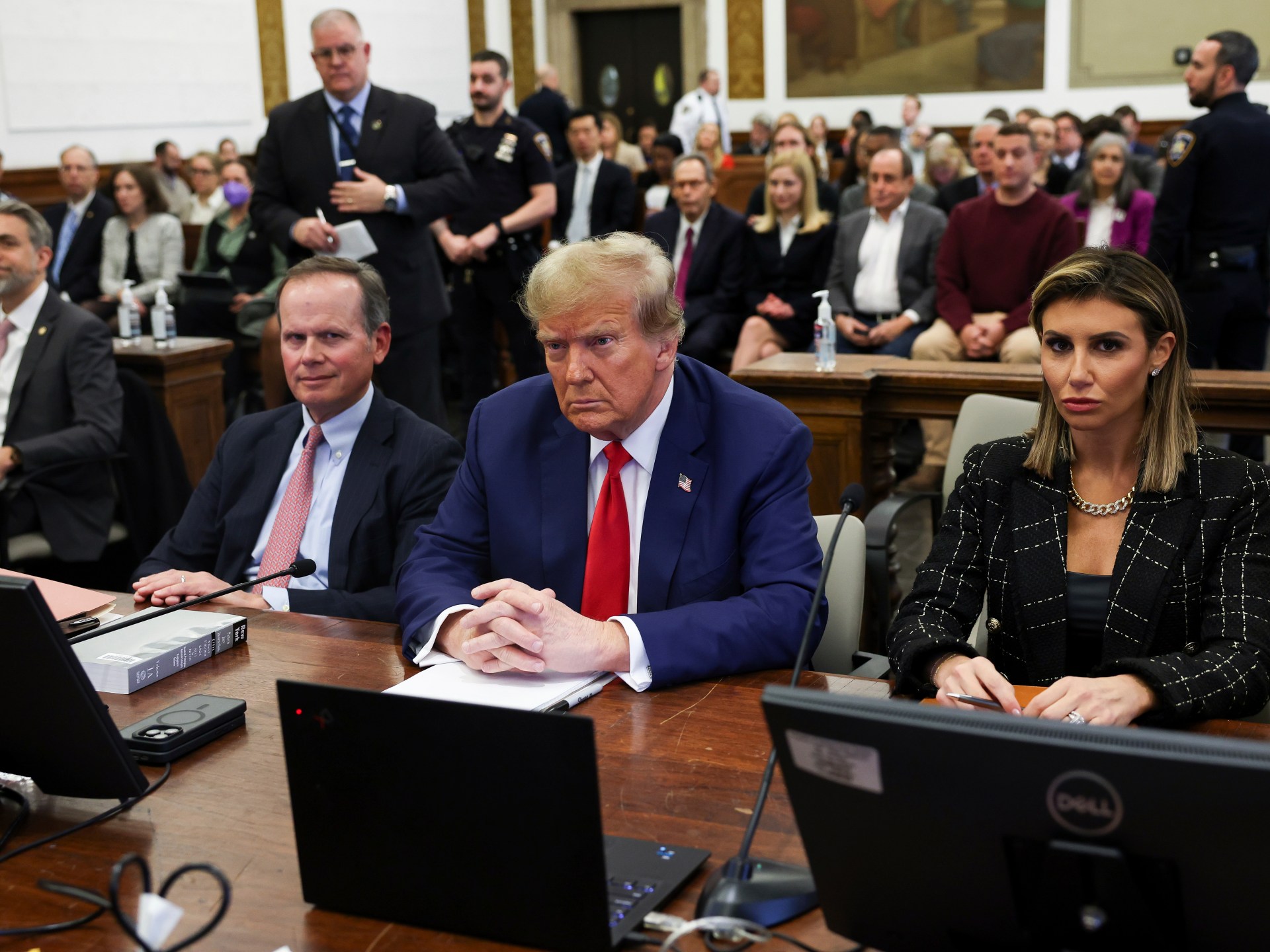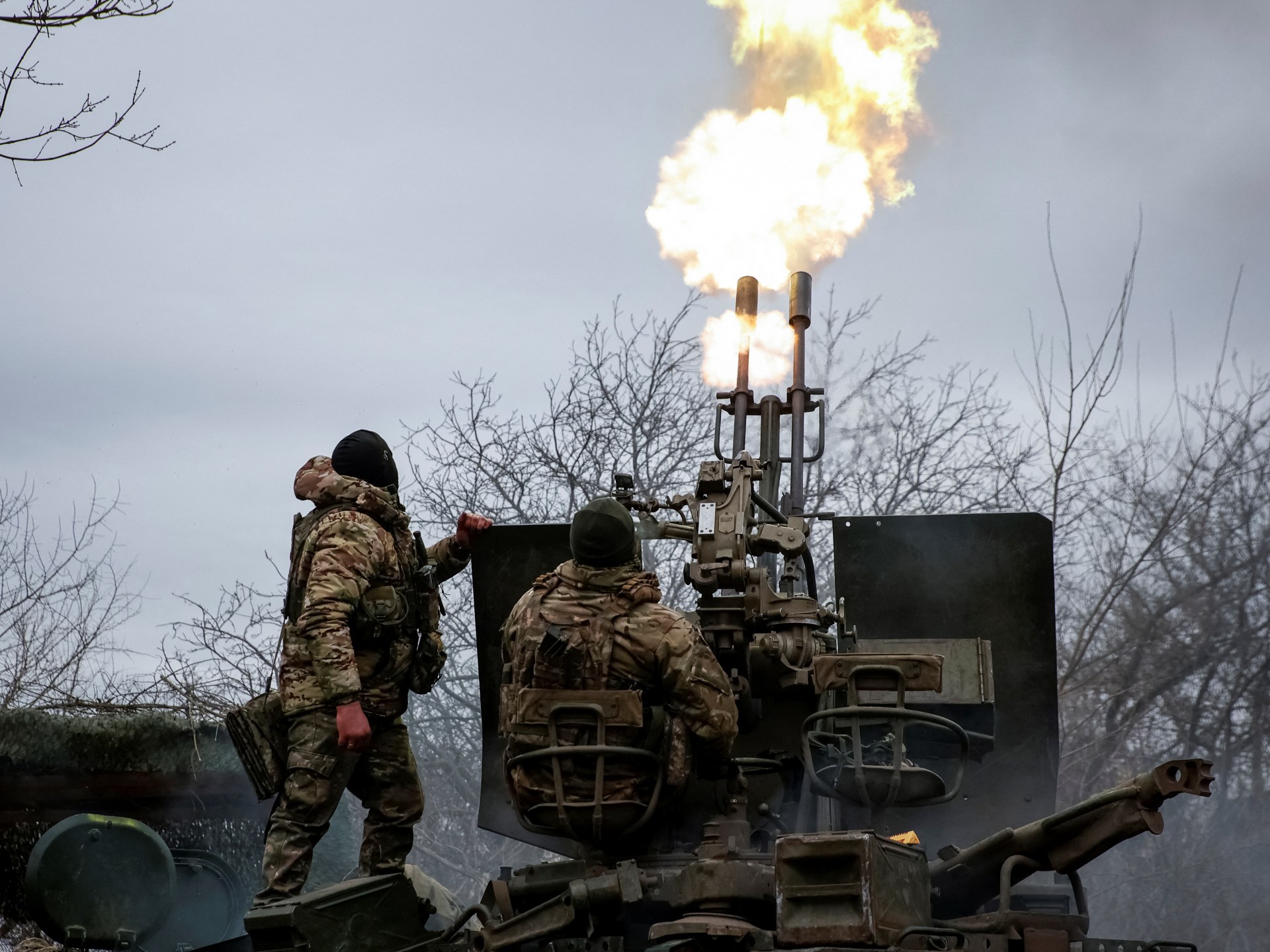Which countries have stopped supplying arms to Israel? | Israel War on Gaza News
EXPLAINER
As civilian casualties continue to mount in Gaza, global calls for countries to halt arms sales to Israel grow.
The United States Senate has approved a bill committing $14bn to support Israel’s war on Gaza this week.
Even before the start of the war last October, the US firmly supported Israel with the supply of military equipment, contributing $3bn annually in military aid. Many other countries provide military support to Israel via arms sales.
Civilian casualties continue to mount in Gaza – currently standing at more than 28,000 dead with thousands more trapped under rubble and presumed dead in just four months of bombardment and ground invasions. The rising death toll is prompting international condemnation from humanitarian and civil society groups in the form of statements, protests and lawsuits filed against countries alleged to be providing military support to Israel. Some countries are responding to this pressure.
On Monday, the European Union foreign policy chief, Josep Borrell, commented on US President Joe Biden’s description of Israel’s response to the October 7 Hamas attacks as “over the top”. “Well, if you believe that too many people are being killed, maybe you should provide less arms in order to prevent so many people being killed,” Borrell told reporters.
So which countries continue to send weapons to Israel and which are taking steps to suspend supply?
Who supplies arms to Israel?
According to the Stockholm International Peace Research Institute’s arms transfers database, 68 percent of Israel’s weapons imports between 2013 and 2022 came from the US.
The US military also stockpiles weapons on the ground in Israel, presumably for use by the US army itself. However, the US has allowed Israel to make use of some of these supplies during the Gaza war.
Besides the US, Israel also receives military imports from other nations.
- Weapons imported from Germany make up 28 percent of Israel’s military imports. Germany’s military exports rose nearly tenfold in 2023 compared with 2022 after it increased sales to Israel in November, according to figures from the German Economic Ministry. Germany primarily supplies Israel with components for air defence systems and communications equipment, according to the German press agency dpa.
- The United Kingdom has licensed at least 474 million pounds ($594m) in military exports to Israel since 2015, Human Rights Watch reported in December 2023. These exports included aircraft, missiles, tanks, technology and ammunition, including components for the F-35 stealth bomber used in Gaza.
- In Canada, dozens of civil society groups have recently urged Prime Minister Justin Trudeau to end arms exports to Israel. The government says it does not send full weapons systems to Israel, but these civil society groups claim it is downplaying the amount of military support it provides. “Canadian companies have exported over $84m [114 million Canadian dollars] in military goods to Israel since 2015,” said Michael Bueckert, vice president of Canadians for Justice and Peace in the Middle East, an advocacy group, adding that the government has continued to approve arms exports since the start of the war.
- Australia’s foreign affairs minister has said the country has not provided weapons to Israel since the start of the war. However, The Australian Greens party’s defence spokesperson, David Shoebridge, has asked for the government to be more transparent about exactly what items have been exported to Israel, adding that the country has one of the most secretive weapons export systems in the world. Amnesty International has also called on Australia to halt arms sales to Israel and claims the country has approved 322 defence exports to Israel over the past six years.
- In France, a pro-Palestine demonstration on February 7 called on French companies, including Dassault Aviation, to stop selling arms to Israel. Demonstrators said, according to the Anadolu news agency, “all French companies that sell arms to the Tel Aviv administration are complicit in Israel’s genocide in Gaza”.

Which countries are stopping arms supplies to Israel?
- In the Netherlands, a court on Monday gave the government one week to block all exports of parts for the F-35 fighter jet, which Israel is using to bomb the Gaza Strip. The ruling was the result of a lawsuit filed by Dutch humanitarian organisations Oxfam Novib, PAX Netherlands Peace Movement Foundation and The Rights Forum against the government. The concerns laid out in this lawsuit overlap with the issues the International Court of Justice (ICJ) is considering in South Africa’s apartheid case against Israel. “It is undeniable that there is a clear risk the exported F-35 parts are used in serious violations of international humanitarian law,” the court ruling stated.
- In Belgium, a regional government said it suspended two licences for the export of gunpowder to Israel on February 6. It was reported that the regional government cited the ICJ interim ruling which found Israel may “plausibly” be committing genocide in Gaza.
- Japanese company Itochu Corporation announced on February 5 that it will end its partnership with Israeli weapons manufacturer Elbit Systems by the end of February. Itochu chief financial officer Tsuyoshi Hachimura told a news conference that the suspension of a memorandum of understanding (MOU) with Elbit Systems was based on a request from Japan’s Ministry of Defense and “not in any way related to the current conflict between Israel and Palestine”. However, he added: “Taking into consideration the International Court of Justice’s order on January 26, and that the Japanese government supports the role of the Court, we have already suspended new activities related to the MOU, and plan to end the MOU by the end of February.”
- Foreign Minister Antonio Tajani said on January 20 that Italy had suspended all shipments of weapons systems or military material to Israel since the outbreak of the war on October 7. This was in response to Democratic Party leader Elly Schlein’s calls on the government to halt the supply of weapons to Israel.
- Spain’s foreign minister said in January the country has not sold any arms to Israel since the start of the war and that there is now an embargo on weapon sales. However, on Monday, the Spanish daily El Diario released a report showing that Spain had exported ammunition worth about $1.1m to Israel in November. Spain’s secretary of state for trade justified selling the ammo, telling El Diario that the “material was for tests or demonstrations” and “corresponds to licences granted before October 7″.
What role has the ICJ ruling played in halting arms sales?
In its interim ruling on South Africa’s genocide case against Israel on January 26, the ICJ stated that Israel is “plausibly” committing genocide in Gaza and ordered it to take “all measures within its power” to prevent acts that could amount to genocide against Palestinians in Gaza. This has spurred humanitarian organisations around the world to pressure their governments to halt sales of arms and military aid.
The ruling “goes beyond Israel” alone, said Raed Jarrar, advocacy director at Washington, DC-based think tank Democracy for the Arab World Now (DAWN). The interim ruling highlights the legal and political obligations of countries to prevent genocide. Advocates say weapons sales and military aid could be deemed to amount to complicity in genocide and be in violation of international law.
Check out our Latest News and Follow us at Facebook
Original Source







